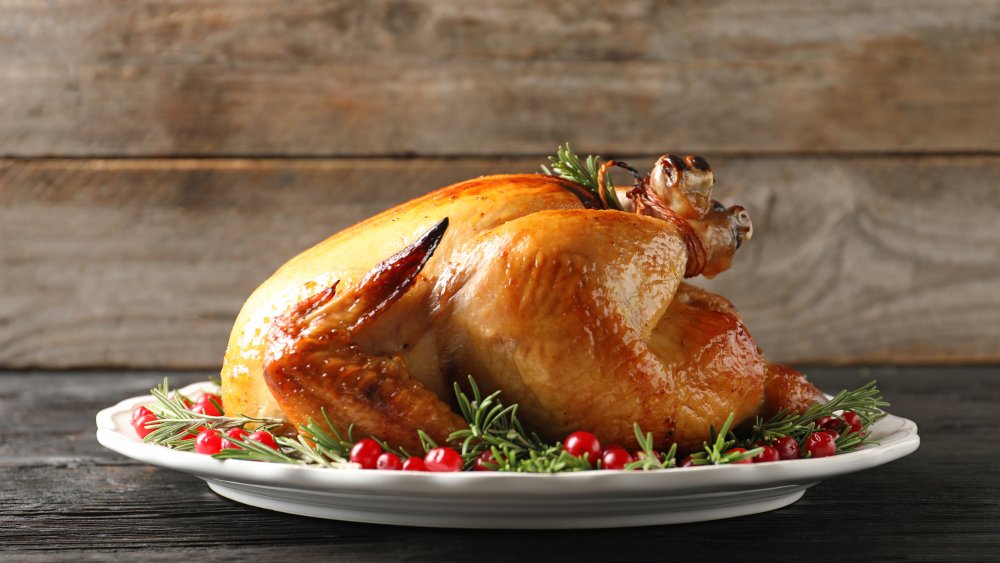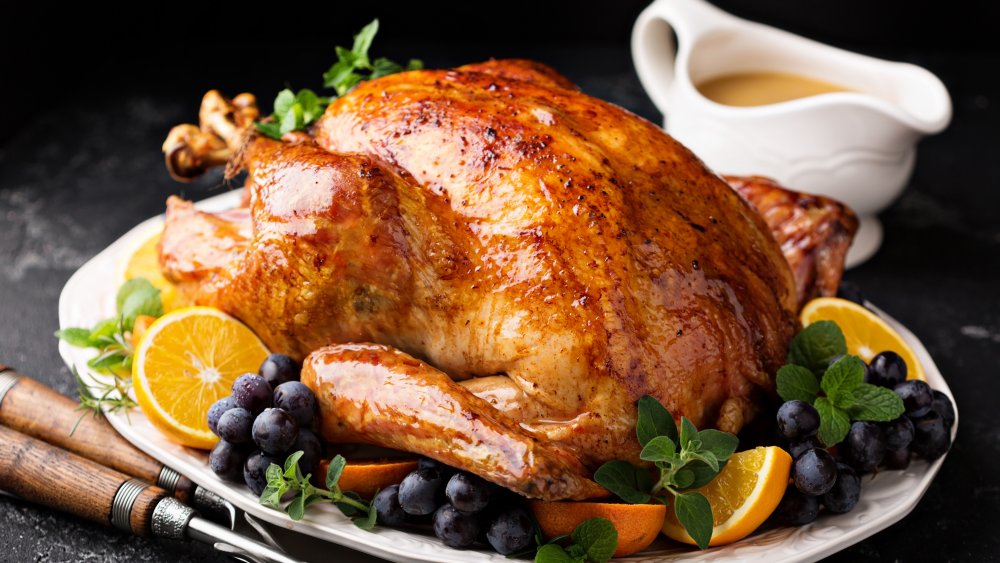The Dangerous Mistake You Don't Want To Make When Deep Frying A Turkey
Every year when Thanksgiving rolls around, you hear about how important it is to completely defrost your turkey. Planning ahead is essential. According to Food Network, allow at least 24 hours of defrosting time in the fridge for every 5 pounds of poultry, so you need to start prepping for your Thanksgiving feast at least a few days in advance. If your turkey isn't completely thawed by the big day, it's a problem, and if you're planning on deep frying your bird, it can actually be dangerous.
In order to deep fry a turkey, you need to heat up a fair amount of hot oil. According to Business Insider, a 30-quart frying pot will need about 3 gallons of oil. Once the oil is hot enough to fry your turkey, if any water gets into the pot at all, it can be extremely dangerous. Water is more dense, so it'll sink to the bottom of the pot. Water boils at a lower temperature than oil, however, so it'll quickly reach its boiling point and turn to steam if you add it to a pot of frying oil. The gas at the bottom pushes the oil above out of the pot, making it splash everywhere, and it can easily catch fire. If you plunk a turkey that hasn't had time to completely defrost into boiling oil, any moisture or ice on it will quickly sink to the bottom, turn to steam, and potentially cause a major fire or dangerous splashing oil.
Other tips for staying safe while deep frying turkey
Any time you're working with a large pot of boiling oil, it's going to be a little dangerous. While you can avoid a major disaster by giving your turkey plenty of time to defrost and double-checking the center cavity for any leftover ice, there are other tips you should also follow for accident-free Thanksgiving preparation.
According to Serious Eats, your set-up is a huge part of staying safe. Make sure the fryer is in an area where kids or pets can't get near it, and use the fryer the way it's intended. That means keeping indoor fryers inside, and outdoor fryers outside, no matter how chilly it gets. You should never leave the fryer unattended while the bird is cooking. If you're frying outdoors, make sure your fryer isn't near any overhangs or other outdoor decorations that could get damaged or catch fire if any oil splashes. Serious Eats also recommends lowering the turkey slowly into the pot — too fast and the oil could splash.
Finally, make sure you know exactly how much oil to use. If you heat up too much, it could overflow when you add the turkey. Deep frying a turkey doesn't have to be scary, but you do need to be cautious — with the right preparations, you'll end up with a juicy, delicious bird for dinner. (And for leftovers.)

